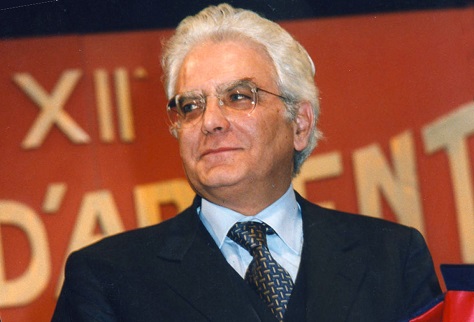It’s hard to escape the sense that last week’s election of Sergio Mattarella as the successor to Italian president Giorgio Napolitano is one more data point bending toward the conclusion that Italian prime minister intends to transform his Partito Democratico (PD, Democratic Party) into a hegemonic movement akin to the 21st century successor to the old postwar Christian Democrats, pulling and dragging it ever to the center. ![]()
Renzi kept his choice for the Italian presidency closely held until almost the very last moment, and when he did reveal his choice, he ensured Mattarella’s prompt election on the fourth ballot, the first vote of the presidential electors during which a simple majority was sufficient. He did so even after sometimes-ally Silvio Berlusconi indicated that he would back an alternative candidate, irking Renzi’s partner on Italy’s recent push for electoral and senatorial reform as well as labor market reform.
Today, it is clear that Renzi is the most talented Italian politician since Berlusconi emerged in 1994. Still, he’s attempting to pull off an odd balance — the policy audacity of Margaret Thatcher alongside the political vision of Aldo Moro, with a hint of the Machiavellian power principles developed so many centuries ago in Florence, the city that Renzi himself governed until last February.
Politically, Mattarella’s election is a clear victory for Renzi, who surpassed the majority he needed by a margin of 130 votes in the 1,009-elector body. It demonstrates, of course, that he enjoys the support of his historically fragmented party’s legislators, avoiding the fiasco that beset his predecessor as PD leader, Pier Luigi Bersani.
Since Renzi took over the premiership one year ago, pushing aside his own party’s more technocratic prime minister Enrico Letta, Renzi hasn’t moved as quickly as he himself once hoped to institute major economic and political reforms that could pull Italy out of its economic doldrums, which began long before the current economic crisis and precipitate what has now become a triple-dip recession amid the highest unemployment rate in postwar Italy. Continue reading Does Mattarella’s election point to new Italian centrism?

